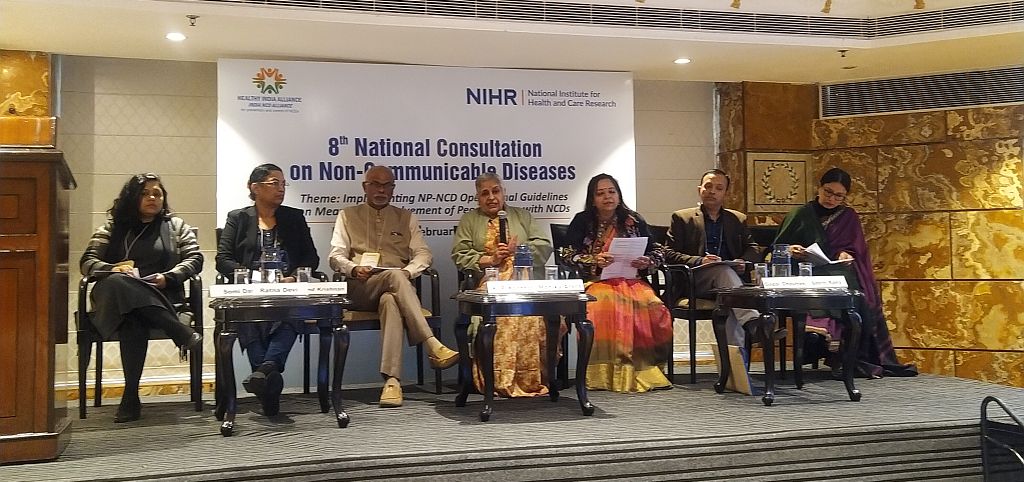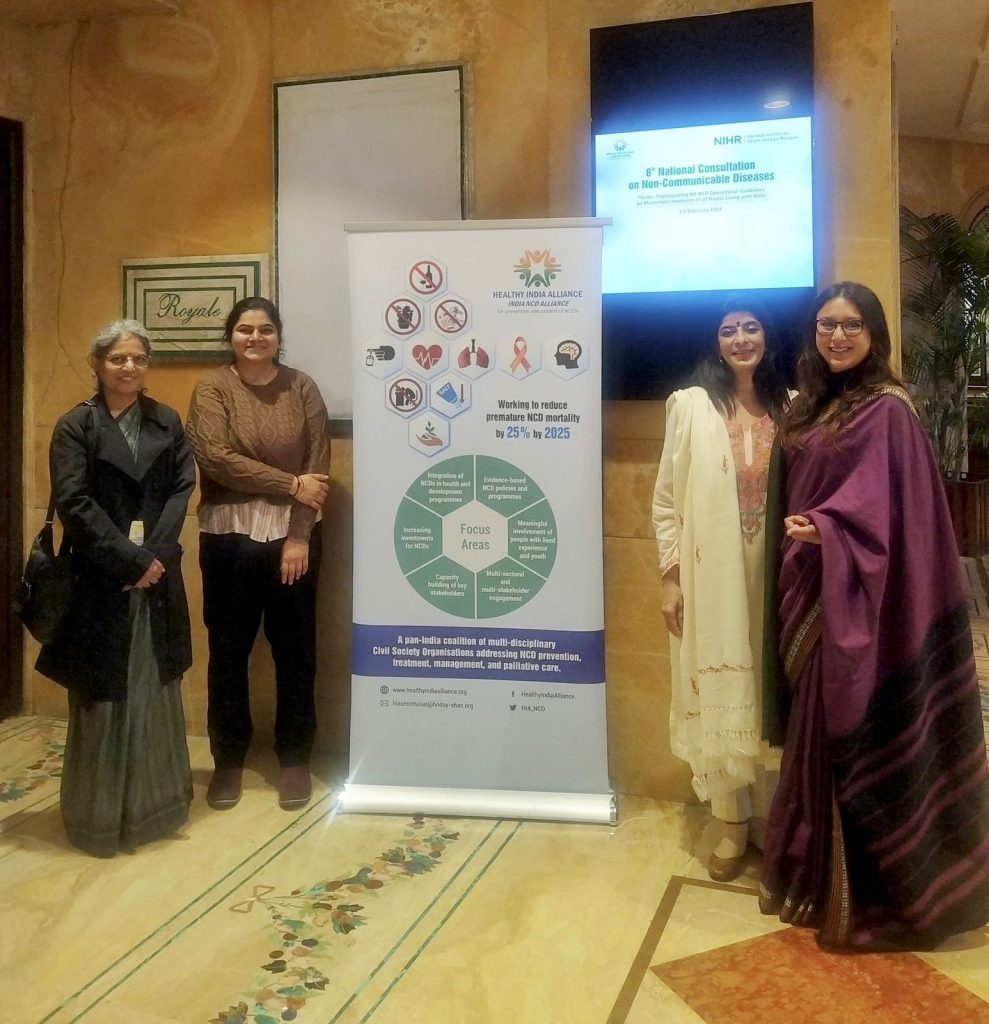A Reflection on the 8th National Consultation on Non-Communicable Diseases: Meaningful Engagement for Impact

The 8th National Consultation on Non-Communicable Diseases (NCDs), held on February 1-2, 2024, in New Delhi, India, served as a critical platform for advancing the cause of people living with NCDs. The theme, “Implementing NP-NCD Operational Guidelines on Meaningful Involvement of People Living with NCDs,” resonated deeply, highlighting the crucial role of lived experience in shaping effective strategies for NCD prevention and control.
The consultation brought together a diverse group of stakeholders, including government officials, public health experts, non-profit organizations, and most importantly, people living with NCDs themselves. This inclusive approach mirrored the spirit of the WHO Framework for Meaningful Engagement of People Living with NCDs, setting the stage for collaborative action.
Embracing the Power of Lived Experience:
One of the most significant aspects of the consultation was the central focus on leveraging the expertise of individuals living with NCDs. Vandana Mahajan, nominated by Pallium India, shared her powerful story, reminding everyone present of the real-world impact of policy decisions. Her insights provided invaluable context to the discussions, ensuring that the conversation remained grounded in human experience.
Smriti Rana, Head of Policy, Strategic Programs and Partnership at Pallium India, further enriched the event by contributing as a panelist. Her viewpoints, informed by Pallium India’s extensive experience in palliative care and advocacy, were well-received and sparked fruitful discussions around integrating the perspectives of people living with NCDs into policy and implementation frameworks.

Aligning Strategies: NP-NCD Guidelines, WHO Framework, and NIHR-GHRC CEI Strategy:
The consultation delved into the crucial task of aligning various strategic frameworks to ensure a cohesive approach to meaningful engagement. Experts explored how the WHO Framework for Meaningful Engagement could be operationalized within the National Programme for Prevention and Control of Cancer, Diabetes, Cardiovascular Diseases and Stroke (NP-NCD) Operational Guidelines and the NIHR-Global Health Research Centre (GHRC) for Multiple Long-Term Conditions (MLTCs) Community Engagement and Involvement (CEI) Strategy.
This alignment is essential for creating a unified system that empowers people living with NCDs at all stages of policy development and implementation. Sessions like the “Panel Discussion: Synergising strategies for meaningful involvement of people with lived experiences” provided fertile ground for these crucial discussions, fostering collaborative efforts to bridge the gap between policy and practice.
Addressing Critical Challenges: Moving Beyond the Agenda:
The consultation acknowledged the challenges that hinder the full potential of meaningful engagement. Issues like securing sustainable funding, eliminating stigma associated with NCDs, and fostering capacity building across institutions were identified as key areas requiring concerted efforts.
The working groups, facilitated by experts from institutions like Kathmandu Medical College (Nepal) and All India Institute of Medical Sciences Jodhpur, played a crucial role in generating practical solutions for addressing these challenges. Their recommendations, focusing on areas like sustainable financing, eliminating stigma, and capacity building, will be instrumental in paving the way for a more inclusive and impactful approach to NCD prevention and control.
Moving Forward: A Shared Responsibility:
As the consultation concluded, a sense of commitment and shared responsibility pervaded the atmosphere. Dr. Mansi Chopra, Deputy Director of HRIDAY, emphasized the importance of translating the takeaways from the consultation into concrete action. This call to action resonated strongly, highlighting the need for continued collaborative efforts from all stakeholders.
Pallium India, through its participation in the consultation, has reaffirmed its commitment to advocating for the rights and needs of people living with NCDs. By amplifying lived experiences and actively engaging in policy discussions, Pallium India continues to strive for a future where individuals living with NCDs are not just subjects of policy but agents of change, empowered to shape a healthier and more equitable future for themselves and their communities.
The 8th National Consultation on NCDs stands as a testament to the power of collective action. Through its focus on meaningful engagement, the event not only shed light on the challenges faced by individuals living with NCDs but also paved the way for tangible and impactful solutions. As the momentum from the consultation continues, it is crucial to translate these valuable insights into action, ensuring that everyone living with NCDs has the opportunity to thrive.
(Report prepared by Dr. Preeti Chauhan, Head – National Policy, Pallium India.)






